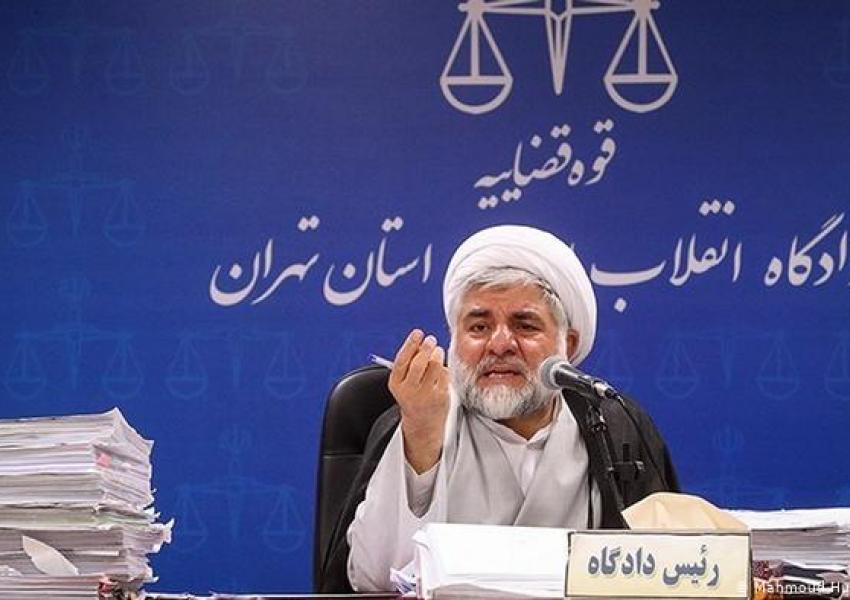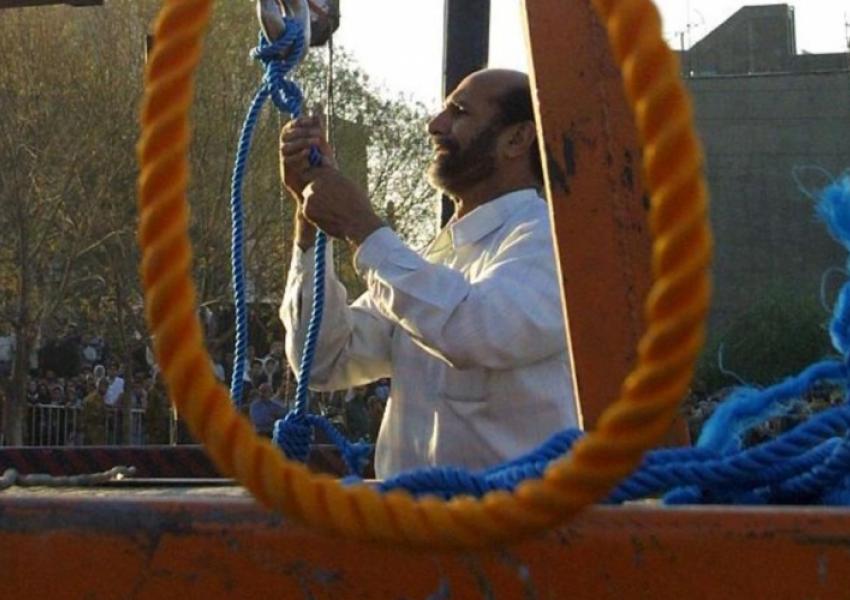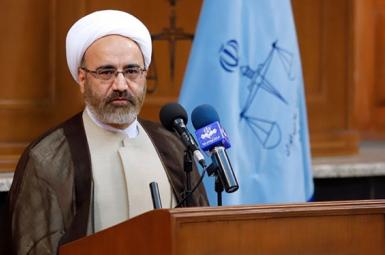
Iran's Judicial System Struggles Between Modernization And Sharia
As Iran is at the doorstep of a new century having entered the year 1400 on the Iranian solar calendar, it is safe to say that one hundred years of a rocky road to modernization characterizes its political and judicial history.
The United Nations and international human rights organizations have long been criticizing the Islamic Republic of Iran for gross rights violations but having a fair and rational judicial system has been one of the fundamental aspirations of Iranian progressives at least since the 1905-06 Constitutional Revolution.
The first Iranian judiciary system in the 1890s had two separate parts with secular and religious courts. The latter operated under the absolute jurisdiction of clerics, without any national unified structure and independent of the government with sway over the country.
The Constitutional reforms had little impact on the judiciary as the early 20th century progressives were mainly preoccupied with the idea of establishing a parliament and faced strong opposition from clerics who opposed a secular judicial system. Minor reforms in the system did not work as clerics' power was immense in the traditional society.
Modernization and Secularism
The first true attempt to modernize the judiciary and restore justice in Iran started with the mandate given to Ali Akbar Davar by Reza Shah Pahlavi and his Prime Minister Hassan Mostofi in 1926. Davar had studied law and served at the Majles as a lawmaker before becoming the justice minister. His first action was to dissolve the judicial structure that existed since the 19th century during the Qajar dynasty.
Davar set up a committee of six lawmakers who wrote down new laws based on European judicial systems and limited the power of clerics to family matters of marriage and divorce. Nonetheless, to keep big clerics happy, the new system formulated some of the personal status laws such as inheritance, based on the rules of Sharia, but the judges who were to decide on such cases were secular officials, often independent of the government.

The mixture of European law and Sharia is typical of many Middle Eastern countries, but the important change was the training and hiring of professional lawyers and judges, taking power away from the clergy.
Clerics in the parliament and in the Qom seminary strongly opposed Davar's reforms, but nearly all the Iranian lawmakers supported the modernization. Reza Shah kept the new justice system on “temporary basis” as an “experiment”, perhaps to pacify the clergy and made it final in 1936.
In the course of the next decades until the end of monarchy in Iran in 1979, the secular system Davar had created continued to work although men of power exerted influence to divert the course of justice.
During the early 1950s Prime Minister Mohammad Mossadeq tried to rid the judicial system of such influences but many observers have said that his reforms were rather superficial for two reasons. The most important reason was that Mossadeq was overwhelmed by political ambitions to reduce the Shah's power and to claim some of those powers for himself. Another reason was that Mossadegh came from a family of landowners and supported the big landowners' interests. Many, of course, argue that Mossadeq himself treated his peasants fairly.
One important development after the 1953 conflict between the Shah and Mossadegh and the victory of the king, military tribunals were established that dealt with security cases, involving Communists and other underground groups.
Islamic Judiciary and Sharia
Although there were complaints about the way the Iranian judiciary treated individual citizens before the Islamic revolution in 1979, the judiciary could not get any worse than what it became under the Islamic Republic. Secular courts were replaced by tribunals ruled by clerics who had very little if any education beyond elementary school and basic Arabic language training at the seminary. Sharia law replaced many tenets of secular law, although a measure of those laws still has an impact in areas such as commercial law.
Meanwhile, orders by the officials of the regime, called on new judiciary officials to take extremely harsh measures against those who opposed the Islamic rule in any manner. The result has been many executions, deaths in custody, and torture of inmates who were denied their basic rights.
Revolutionary courts were established headed by hardliner clerics who sentenced people to death or long prison terms without due process of law and sometimes after a brief hearing.
Since 2009, the judiciary has increasingly become a partner of security and intelligence organs, working in tandem to suppress dissent.
Many of those in jail are never tried and many of the sentences handed to those convicted in arbitrary courts are not proportionate to the alleged crimes. Some citizens who participated in protests since 2009 were sentenced to more than twenty years in jail for showing up at political gatherings or women taking off their headscarves. Meanwhile, religious and ethnic minorities have been under constant pressure and often end up in jail for no reason. Even the relatives of inmates are under pressure by judiciary and security officials.
Iran executed at least 249 people including 7 women while security forces shot dead 101 in the past 12 months, Human Rights Activists News Agency (HRANA) said in its annual report.
According to the report, during the past 12 months Iranian security forces shot at 250 citizens on various occasions, leading to the deaths of 101. Thirty-seven of those shot dead by security forces or border guards were cross-border goods carriers in Kurdestan Province in western Iran.








